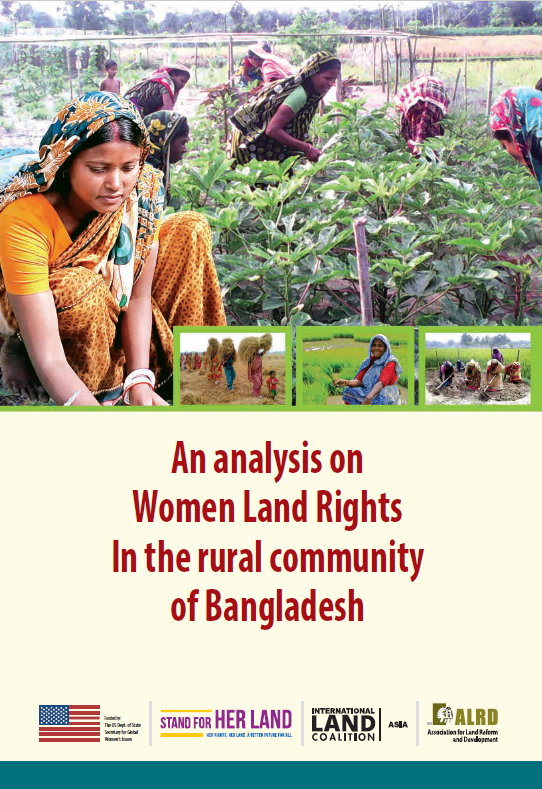 Women’s land rights are practically denied in Bangladesh; here women have little access to agricultural and non-agricultural land. This is the reality at least for most of the women who are poor and marginalized. There are both demand side and supply side bottlenecks playing a role in the non-realization of women’s land rights. Demand side hindrances include, among others, the illiteracy and ignorance of women and their disinclination to claim their land rights due to social norms and expectations. Supply side constraints include poor policies, poor implementation and a lack of institutional will and governance mechanisms to protect and promote women’s land rights.
Women’s land rights are practically denied in Bangladesh; here women have little access to agricultural and non-agricultural land. This is the reality at least for most of the women who are poor and marginalized. There are both demand side and supply side bottlenecks playing a role in the non-realization of women’s land rights. Demand side hindrances include, among others, the illiteracy and ignorance of women and their disinclination to claim their land rights due to social norms and expectations. Supply side constraints include poor policies, poor implementation and a lack of institutional will and governance mechanisms to protect and promote women’s land rights.
In this context, this assessment is commissioned for identification of legal and policy gaps regarding women’s access to land rights, social norms, and behavioral practices among different communities.
We are very thankful to the Association for Land Reform and Development (ALRD) and Landesa for entrusting us with the responsibility to undertake this important study. Our appreciation goes to all the untiring souls of ALRD involved in the process of conducting the study and preparing the report. For facilitating the field study including community dialogues and key informant interviews, we would like to show our gratitude to Shah I Mobin Jinnah, Executive Director, Community Development Association (CDA); AHM Shamsul Islam Dipu, Mission Head, Speed Trust; and ANM Fazlul Hadi Sabbir, Executive Director, Beneficiaries Friendship Forum (BFF). We are also grateful to Farjana Akter, animator, BFF; Litush Kubi, regional coordinator (Dinajpur Sadar-Chirirbondor) and Sohel Rana, Manager (Field Operations) CDA; and Saiful Islam, animator, Speed Trust. Above all, we will remain ever grateful to the participants of the community dialogues and the key informants of the field study, without whose profound support, the implementation of the study would not have been possible.
Our efforts would be fruitful if the findings provide all the relevant authorities with the proper picture of women’s land rights, and act accordingly for the best interest of the marginalized landless women of the country.
